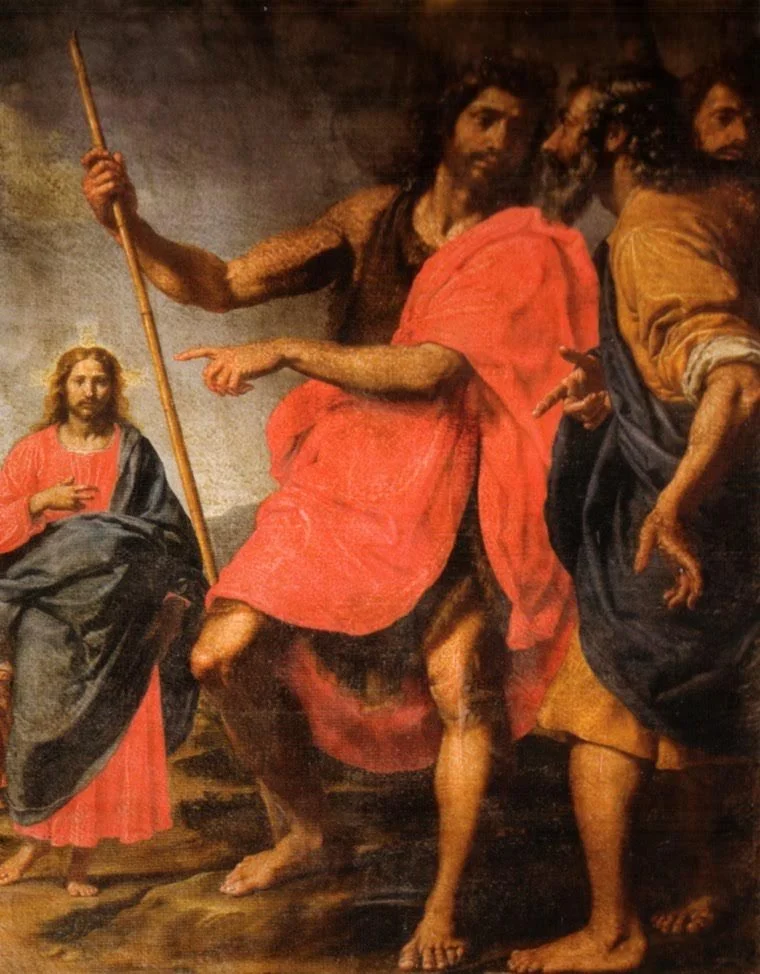He must increase; I must decrease (cf. Jn 3:30)
This message of St. John the Baptist is a summary of our spiritual life program. Jesus once said that “among those born of women there has been none greater than John the Baptist” (cf. Mt 11:11). The quoted statement of John shows that he has reached the fullness of spiritual life. The spirit in which he utters the quoted words is important here: “You yourselves can testify that I said: I am not the Messiah, but that I was sent before him. The one who has the bride is the bridegroom; the best man, who stands and listens to him, rejoices greatly at the bridegroom’s voice. So, this joy of mine has been made complete.” (cf. Jn 3:28-29)
Joy is a sign of fully accepting the truth. John the Baptist was free from pride and all desire to gain recognition in the world. It is the real pinnacle of spiritual freedom. Only then does the full possibility of being born of God open up, as mentioned in St. John the Evangelist: “We know that no one begotten by God sins; but the one begotten by God he protects, and the evil one cannot touch him” (cf.1 Jn 5:18). For as long as we succumb to the desires of this world, that is, “sensual lust, enticement for the eyes, and a pretentious life, is not from the Father but is from the world” (cf. 1 John 2:16), we are not able to surrender ourselves fully to God. Freeing ourselves from them allows us to fully surrender ourselves. But how to do it? Saint John writes even more about this dedication to God. Freeing ourselves from them allows us to surrender ourselves fully to Him. But how will I do it? Saint John writes even more about this dedication to God. It is possible through Jesus who makes it possible: “We also know that the Son of God has come and has given us discernment to know the one who is true. And we are in the one who is true, in his Son Jesus Christ. He is the true God and eternal life.” (cf. 1 Jn 5:20)
Primarily, he has bestowed upon us the ability of reason to know the True One, that is, to know God. Knowing the Bible is not reduced to intellectual knowledge, but it is entering into an intimate relationship. Therefore, further St. John speaks of "being in" true God. As in the Gospel, the first meeting and getting to know Jesus began with the entrance of St. John and Andrew to the dwelling place of Jesus, so our knowledge is connected with living with Him, it begins with entering into living communion with Him, which takes place sacramentally during Holy Baptism. From him begins the path to eternal life, which in fact is Him, i.e., for us, concretely, living in Him, dwelling in Him.
On our way with the ordinary human dimension, everything begins with the simple knowledge and choice of Jesus. The final union with Him is the end of the road. Then He becomes everything in us, and we are only in Him. Nothing remains outside of Him, that is, we leave nothing "only for ourselves". It seems that the fear of losing everything "mine", is the greatest obstacle to giving oneself to Christ. This fear can only be overcome by the awareness of his love to the end, a love in which he gives himself completely, without leaving anything for himself. Hence getting to know the True One and cutting oneself off from false idols, all one's own ideas for life, imaginary ideals, etc. is the foundation of meeting Him.
We share our path with other people. We need to support each other, especially when we fail. Saint John recommends praying for someone who has sinned. We may, however, be surprised by his utterance: “There is such a thing as deadly sin, about which I do not say that you should pray” (cf. 1 Jn 5:16). What is this sin against which St. John does not recommend praying, a sin that brings death? It seems to be a sin against the Holy Spirit, mentioned by the Lord Jesus in the Gospel. The sin in which we reject God, the True One, the sin of rejecting the knowledge that the Spirit gives us. This is tantamount to choosing death. When St. John speaks of prayer, he means the prayer mentioned earlier, in which we are sure that He hears us and fulfills our prayers. In the case of sin against the Holy Spirit, one cannot pray only for the forgiveness of sin, because in the conscience of the sinner there is no rejection of this sin and no desire to accept God's will. In such a case, one can only pray for his conversion.
On the way to full union with Jesus, we receive the Eucharist, which contains the mystery of His complete devotion to us. This sacrament of love is our food for eternal life, which He is himself, food that strengthens us against the paralyzing fear that exists within us. Also, the Eucharist is a sacrament in which He gives himself to us, but so that we give ourselves to Him in our brothers and sisters.
Until Tomorrow
fr. george


